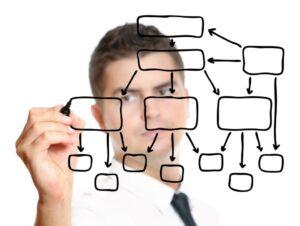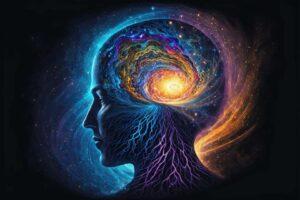Knowledge refers to the understanding or awareness of facts, information, and concepts and is a fundamental part of human learning and development. Knowledge can take many different forms, including scientific knowledge, cultural knowledge, and practical knowledge.
Acquiring knowledge is an ongoing process that involves seeking out new information, learning from experiences, and developing critical thinking and analytical skills. Knowledge can be acquired through formal education and training as well as through personal exploration and self-directed learning.
The acquisition and application of knowledge have a range of positive effects on mental and physical health, including improving cognitive function, enhancing problem-solving and decision-making skills, and promoting a greater sense of purpose and meaning in life.
To cultivate knowledge in your life, it's important to approach learning with a curious and open mindset and to seek out new experiences and opportunities for growth and development. This may involve pursuing formal education and training, engaging with experts and mentors in your field of interest, or seeking out online resources and other learning opportunities.
It's also important to approach the acquisition and application of knowledge with a critical and analytical mindset and to challenge your own assumptions and biases in the pursuit of understanding and insight. By cultivating knowledge and understanding in your life, you can enhance your personal and professional growth and contribute to a more informed and engaged society.
Knowledge
Acquiring knowledge is essential because it:
* Enhances decision-making: Knowledge empowers you to make informed choices and judgments.
* Improves problem-solving skills: Understanding various concepts and principles enables you to approach challenges with confidence and find effective solutions.
* Fosters personal growth: Expanding your knowledge and learning new things can contribute to a growth mindset and a sense of accomplishment.
* Increases self-confidence: Being knowledgeable can boost your self-esteem and help you feel more competent in various aspects of life.
* Encourages a sense of curiosity: Continuously seeking knowledge can help you maintain an open and inquisitive mindset, which is beneficial for overall mental wellbeing.
* Enhances decision-making: Knowledge empowers you to make informed choices and judgments.
* Improves problem-solving skills: Understanding various concepts and principles enables you to approach challenges with confidence and find effective solutions.
* Fosters personal growth: Expanding your knowledge and learning new things can contribute to a growth mindset and a sense of accomplishment.
* Increases self-confidence: Being knowledgeable can boost your self-esteem and help you feel more competent in various aspects of life.
* Encourages a sense of curiosity: Continuously seeking knowledge can help you maintain an open and inquisitive mindset, which is beneficial for overall mental wellbeing.
Some effective ways to acquire knowledge include:
* Reading books, articles, or research papers on a variety of subjects.
* Participating in workshops, seminars, or online courses.
* Engaging in conversations and discussions with knowledgeable individuals.
* Observing and learning from others' experiences, successes, and mistakes.
* Pursuing hands-on experiences or practical applications of concepts.
* Staying updated with news and developments in your areas of interest.
* Reading books, articles, or research papers on a variety of subjects.
* Participating in workshops, seminars, or online courses.
* Engaging in conversations and discussions with knowledgeable individuals.
* Observing and learning from others' experiences, successes, and mistakes.
* Pursuing hands-on experiences or practical applications of concepts.
* Staying updated with news and developments in your areas of interest.
To retain and apply the knowledge you've acquired:
* Review and revise: Regularly revisit the material you've learned to reinforce your understanding.
* Practice: Apply your knowledge in real-life situations or through hands-on experiences to strengthen your grasp of the concepts.
* Teach others: Sharing your knowledge with others can help solidify your understanding and improve retention.
* Take notes: Write down key points or create summaries to help you remember and organise the information.
* Connect new information to existing knowledge: Relate new concepts to what you already know, as this can help create a more comprehensive understanding of the subject matter.
* Review and revise: Regularly revisit the material you've learned to reinforce your understanding.
* Practice: Apply your knowledge in real-life situations or through hands-on experiences to strengthen your grasp of the concepts.
* Teach others: Sharing your knowledge with others can help solidify your understanding and improve retention.
* Take notes: Write down key points or create summaries to help you remember and organise the information.
* Connect new information to existing knowledge: Relate new concepts to what you already know, as this can help create a more comprehensive understanding of the subject matter.
Related Semantic Entities for Knowledge










